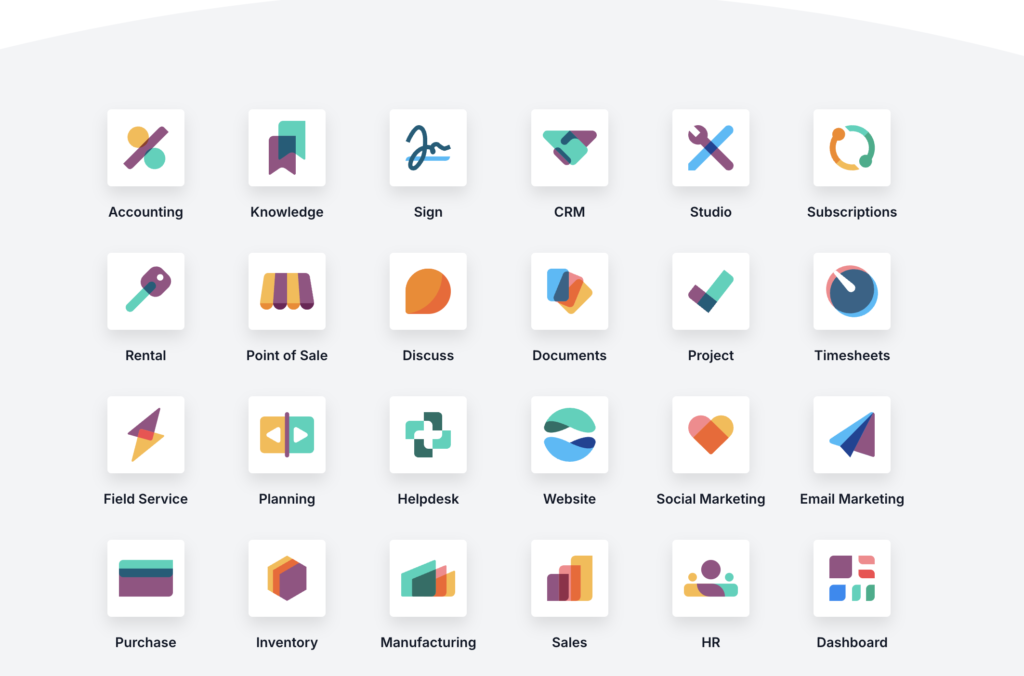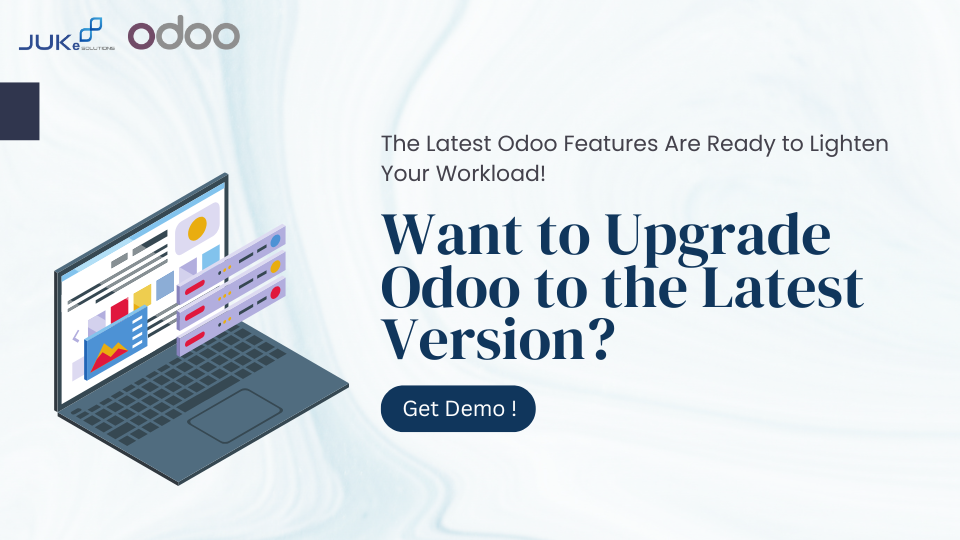In today’s competitive business landscape, effective resource management is crucial for success, and this is where Odoo shines as a leading ERP solution. Odoo offers two primary editions—Enterprise and Community—each designed to cater to varying business requirements. Choosing the right edition is of paramount importance, as it directly influences a company’s operational efficiency and overall growth trajectory. This article aims to assist businesses in determining which Odoo edition best suits their needs by providing a comprehensive comparison of the features, benefits, and limitations of both versions.
Overview of Odoo ERP
Odoo ERP is an integrated suite of business applications designed to streamline operations across various departments, including sales, inventory, accounting, and human resources. Its benefits extend beyond simple automation; Odoo enhances collaboration, improves productivity, and provides valuable insights through real-time data analytics. One of the standout features of Odoo is its modularity, allowing businesses to select and implement only the modules that align with their specific needs. This flexibility enables organizations to customize their ERP system without overwhelming complexity. Additionally, Odoo’s scalability ensures that it can grow alongside a business, accommodating increased operational demands as the company expands. This combination of modularity, flexibility, and scalability positions Odoo as a versatile solution for businesses of all sizes and industries.
Key Differences Between Odoo Enterprise and Odoo Community
When considering Odoo, understanding the key differences between the Enterprise and Community editions is essential for making an informed decision.
Licensing and Cost Structure
The licensing and cost structure of Odoo Enterprise and Odoo Community represent a fundamental distinction between the two editions. Odoo Community is an open-source platform, meaning it is free to download, use, and modify. This makes it an attractive option for startups and small businesses that may have budget constraints yet require a robust ERP system. On the other hand, Odoo Enterprise operates on a subscription model, which entails ongoing costs that can vary based on the number of users and modules implemented. This subscription not only grants access to more advanced features but also includes regular updates and dedicated support. Consequently, businesses must weigh their budgetary considerations against the additional functionalities and support that Odoo Enterprise provides.
Feature Comparison
The feature comparison between Odoo Enterprise and Odoo Community reveals significant differences that can impact a business’s operational efficiency. While both editions offer essential ERP functionalities such as sales, inventory management, and basic accounting, Odoo Enterprise boasts a wealth of advanced features that enhance its utility for larger organizations. For instance, Enterprise includes sophisticated modules for manufacturing, advanced accounting functions, and automated workflows for multi-company management. These capabilities enable businesses to streamline complex processes and improve decision-making. In contrast, Odoo Community offers a more basic set of features, which may suffice for smaller businesses or those with simpler needs but can limit functionality as an organization grows or diversifies.
Customization and Flexibility
Customization and flexibility are critical factors when selecting an ERP system, and this is where Odoo Enterprise particularly excels. The Enterprise edition includes Odoo Studio, a powerful customization tool that allows users to create custom fields, workflows, and reports without needing extensive coding skills. This ease of use enables businesses to tailor their Odoo experience to meet specific operational requirements and industry standards. Conversely, Odoo Community, while still customizable, often requires more technical expertise for modifications, making it less accessible for users without a strong IT background. As businesses evolve, the flexibility offered by Odoo Enterprise can be a significant advantage, allowing them to adapt their ERP system to changing needs and market conditions efficiently.
Support and Maintenance
Support and maintenance services are another key differentiator between Odoo Enterprise and Odoo Community. Odoo Enterprise users benefit from a comprehensive support package that includes 24/7 assistance, regular updates, and priority access to bug fixes. This level of support is invaluable for organizations that rely heavily on their ERP system for day-to-day operations, as it minimizes downtime and ensures quick resolution of issues. In contrast, Odoo Community users typically rely on community forums and online resources for troubleshooting, which may result in longer wait times for support and potentially less reliable solutions. Additionally, since community users do not receive automatic updates, they must manage their system maintenance independently, which can pose challenges for businesses lacking dedicated IT resources. Ultimately, the support and maintenance offerings of Odoo Enterprise provide peace of mind for organizations looking to optimize their ERP experience.
A Detailed Comparison of Odoo Enterprise and Odoo Community

When choosing between Odoo Enterprise and Odoo Community, businesses must consider the capabilities and limitations of each edition to find the right fit. While both versions offer strong ERP solutions, Odoo Enterprise stands out with advanced functionalities tailored for complex operations. Here’s a detailed comparison of essential features that make Odoo Enterprise ideal for growing organizations, and where Odoo Community may suffice for smaller setups.
Full Advanced Manufacturing
Odoo Enterprise delivers a comprehensive suite of manufacturing features designed for advanced production management. Key functionalities include Work Center Management and Quality Control, allowing manufacturers to monitor and optimize production stages efficiently. The Work Center Management tool helps track time, costs, and productivity at each work center, ensuring resource allocation aligns with production goals. Quality Control also ensures high standards by allowing custom quality checks at each stage of production.
In contrast, Odoo Community offers only basic manufacturing features, which may be suitable for small operations but lack the detailed monitoring tools available in Enterprise. Without tools like work centers and integrated quality checks, businesses using Community may encounter challenges as their production scales.
Full Accounting Function
Accounting is another area where Odoo Enterprise showcases its power. It includes comprehensive accounting tools, such as tax localization, bank synchronization, and reconciliation, which help automate financial processes and ensure compliance with local regulations. These features allow for smoother financial operations, including real-time bank synchronization and automated reconciliation, which simplify tasks that would otherwise be time-consuming.
Odoo Community, however, provides a limited set of accounting features, often requiring manual intervention for processes like reconciliation and reporting. This manual setup can become time-consuming and error-prone for larger organizations, making Odoo Enterprise a better choice for businesses seeking automated, high-level accounting solutions.
Multi-Company Automated Flows
Multi-company management is significantly streamlined in Odoo Enterprise, where automated inter-company transactions and consolidated reporting enable businesses with multiple entities to operate efficiently. The Enterprise edition automates data transfers and workflows between different companies within a group, creating seamless processes and ensuring consolidated financial reporting across entities.
Odoo Community lacks this level of automation, meaning that inter-company transactions and reporting must be handled manually. This can result in inefficiencies and increased administrative overhead for businesses managing multiple locations or legal entities, as data must be reconciled and entered for each entity independently.
Odoo Studio Customization
For businesses that require extensive customization, Odoo Enterprise offers Odoo Studio, a drag-and-drop tool that allows users to create custom fields, views, workflows, and reports without the need for coding. This flexibility is especially valuable for companies that need to tailor their ERP system to specific operational requirements or industry standards. With Odoo Studio, teams can modify and design modules quickly, making Enterprise a strong choice for those seeking adaptability.
In comparison, customization options in Odoo Community are limited. While customization is possible, it typically requires technical expertise, as changes must be made manually in the code. For companies without a dedicated IT team, this could lead to additional costs or slower implementation of necessary changes.
Better Human Resource Management
Odoo Enterprise excels in human resource (HR) management with advanced features like payroll integration, recruitment management, and employee self-service portals. The payroll integration simplifies payroll processing, while recruitment management tools streamline the hiring process from candidate tracking to onboarding. Enterprise also offers performance tracking, appraisals, and employee attendance, enhancing HR capabilities and employee engagement.
The Community edition, however, provides only basic HR functionalities. While it supports simple employee records and attendance tracking, it lacks advanced tools for payroll, recruitment, or performance evaluation. For organizations with extensive HR needs, Odoo Enterprise offers the features necessary to manage a growing workforce effectively.
Better & Friendlier UI/UX
User experience (UX) is often a deciding factor when selecting an ERP system, and Odoo Enterprise features a more polished and user-friendly interface with advanced dashboards and visual reporting tools. These enhancements make it easier for users to navigate, analyze data, and generate insights. The visual design also increases employee adoption and productivity, as the streamlined interface helps users complete tasks more efficiently.
Odoo Community offers a simpler interface, which may work well for smaller businesses or teams with minimal requirements but lacks the enhanced dashboards and visual reporting tools found in Enterprise. For users accustomed to more modern, intuitive software, the Community edition’s interface might feel limited in terms of both functionality and ease of use.
Hosting Options
Odoo Enterprise provides flexible hosting options, allowing businesses to choose between cloud hosting, on-premise deployment, or Odoo.sh, a dedicated hosting service managed by Odoo. This flexibility enables companies to select a hosting solution that aligns with their infrastructure, compliance, and security needs. With Odoo.sh, Enterprise users also benefit from automatic updates, monitoring, and enhanced security features.
In contrast, Odoo Community users must manage their own hosting, either through self-hosting or by opting for a third-party provider. This arrangement requires more technical expertise, as Community users are responsible for installation, updates, and maintenance. While third-party providers may offer managed hosting for Community, they may lack the full support and reliability offered directly by Odoo through Odoo.sh.
Read more: Odoo 18 Release: Discover Exciting New Features for Users!
Support, Bug Fixes, and Upgrades Comparison
Choosing the right ERP system requires understanding not just the features but also the level of support and maintenance available for each edition. Odoo Enterprise and Odoo Community vary significantly in their support services, bug-fixing resources, and upgrade options, which are crucial to ensuring smooth operations. Here’s a breakdown of how Odoo Enterprise provides comprehensive assistance and proactive maintenance, while Odoo Community relies more on user initiative.
Bug Fixing Service
Odoo Enterprise provides priority bug-fixing support, ensuring quick resolutions for technical issues directly from Odoo’s team. In contrast, Odoo Community users must rely on forums or external developers, which may slow down troubleshooting and lead to inconsistent solutions.
Support Service
Enterprise subscribers benefit from 24/7 dedicated support, giving them immediate assistance and peace of mind for any system-related issues. Community users have access only to community forums and may need to hire third-party experts for specific support needs, adding time and potential costs.
Upgrades
Odoo Enterprise includes regular, automatic upgrades with new features and security patches, ensuring the system stays current. Community users, however, must manage upgrades manually, which can be complex and time-consuming, potentially leading to outdated software if upgrades are postponed.
Conclusion: For businesses needing reliable support, proactive bug fixes, and hassle-free upgrades, Odoo Enterprise is the superior choice, while Community suits those with technical expertise and simpler requirements.
Pros and Cons of Odoo Enterprise and Odoo Community
Choosing between Odoo Enterprise and Odoo Community depends on your business needs, budget, and technical capabilities. Below is a breakdown of each edition’s advantages and drawbacks to help you make an informed decision.
Odoo Community Pros and Cons
Pros:
- Cost-effective: Free and open-source, making it a budget-friendly option for small businesses or startups.
- Flexibility: Allows for customization with open-source code, which is ideal for companies with in-house development capabilities.
- Extensive community support: Access to a large, active user community for tips, solutions, and best practices.
Cons:
- Limited features: Lacks advanced tools like automated workflows, full accounting, and enhanced manufacturing capabilities found in the Enterprise edition.
- Manual updates: No automatic upgrades, meaning users are responsible for managing updates.
- Limited support: Relies primarily on forums and third-party support, which may slow down troubleshooting for critical issues.
Odoo Enterprise Pros and Cons
Pros:
- Comprehensive feature set: Includes advanced functionalities, such as full accounting, automated workflows, multi-company support, and Odoo Studio for easy customization.
- Dedicated support: Priority support and bug-fixing services directly from Odoo, ensuring smooth operations and quick issue resolution.
- Automatic upgrades: Regular updates and security patches managed by Odoo, reducing the need for manual maintenance.
Cons:
- Licensing costs: Requires a subscription fee, which may be a constraint for smaller companies or startups.
- Less flexibility with code: While it allows some customization, Enterprise’s licensed model may limit certain types of deep modifications compared to the open-source Community edition.
Which Odoo Edition is Right for Your Business?
Odoo Enterprise and Odoo Community serve different purposes, making the choice highly dependent on business size, complexity, and specific needs. Odoo Enterprise provides a robust, comprehensive solution with advanced features, customization capabilities, and dedicated support, making it ideal for medium to large businesses or companies with complex operational requirements. On the other hand, Odoo Community offers a cost-effective, open-source option for smaller businesses or startups that require a simpler ERP system without extensive features or support needs.
By understanding these detailed differences, businesses can make an informed choice, ensuring that their ERP system supports their growth and operational goals effectively. Selecting between Odoo Community and Odoo Enterprise depends on several factors:
- Small Businesses/Startups: For startups or small businesses with tight budgets and in-house development resources, Odoo Community may be ideal. It provides essential ERP functionalities without the cost, allowing room for growth as business needs expand.
- Medium/Large Enterprises: Larger businesses with complex needs, such as advanced accounting, automated workflows, and priority support, will benefit more from Odoo Enterprise. The advanced features and dedicated support are invaluable for companies that require stable, scalable, and efficient ERP solutions.
- Industry-Specific Needs: Businesses in highly regulated or complex industries (e.g., manufacturing, retail) may find Odoo Enterprise’s specialized tools, like full manufacturing and HR management, critical to their operations.
Odoo Enterprise and Odoo Community each offer unique benefits. The Community edition is ideal for businesses looking for a budget-friendly, customizable ERP solution with basic features. In contrast, Odoo Enterprise is tailored for companies that prioritize advanced capabilities, dedicated support, and ease of maintenance.
For businesses needing advanced features, support, and regular updates, Odoo Enterprise is the best choice. Smaller businesses or those with simpler requirements may find Odoo Community sufficient.
Ready to discover the right Odoo solution for your business? Contact us for a consultation or a personalized demo. Explore additional resources or use our comparison tool to better understand which edition best suits your needs!


